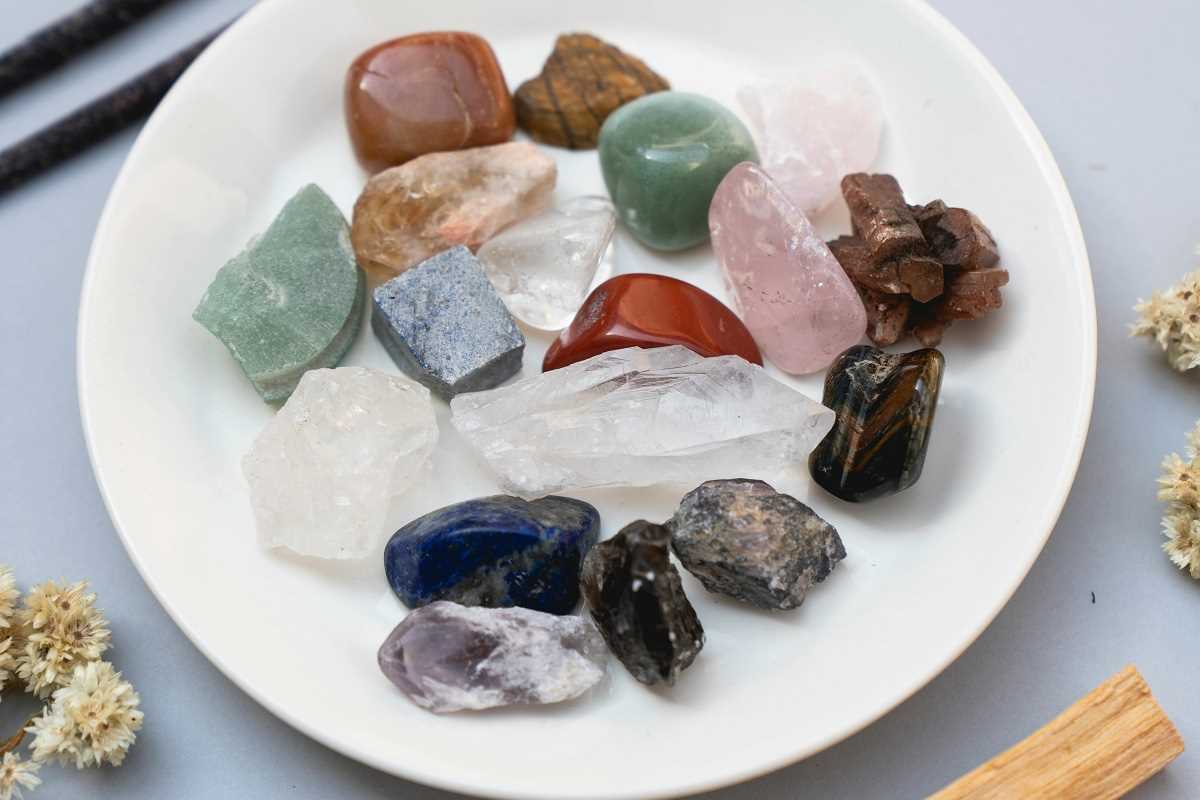Hormonal imbalances can manifest as an array of physical and emotional challenges, including irregular menstrual cycles, thyroid dysfunction, mood swings, and menopause symptoms. While conventional medicine typically addresses hormonal issues by targeting specific glands or supplementing hormone levels, Traditional Chinese Medicine (TCM) takes a comprehensive and holistic approach. It views hormonal health as a reflection of the body's balance and harmony, emphasizing the interconnectedness of energy systems. By exploring the principles and practices of TCM, we can understand how its unique perspective provides effective solutions for hormonal imbalances.
The Foundations of TCM and Hormonal Health
Traditional Chinese Medicine is built on foundational concepts like Yin and Yang, Qi, and the Five Elements. These ideas form the backbone of its diagnostic and therapeutic systems. Here's how they relate to hormonal health:
Yin and Yang
TCM views the body as a dynamic balance of Yin (the feminine, cooling, and nurturing energy) and Yang (the masculine, warming, and active energy). Hormones, which regulate numerous functions in the body, embody these dual energies. For example, estrogen aligns with Yin due to its nourishing and stabilizing properties, while testosterone or cortisol often corresponds to Yang due to their activating roles. Hormonal imbalances are seen as disruptions in the Yin-Yang equilibrium. Issues like menopause may stem from Yin deficiency, while conditions like hyperthyroidism could indicate excessive Yang.
Qi (Life Force)
Qi is the vital energy that flows through the body's meridians or pathways. Hormonal imbalances are often linked to stagnant or deficient Qi. For instance, if Qi flow is blocked in reproductive organs, it can lead to menstrual irregularities or infertility. TCM treatments aim to clear blockages and fortify depleted Qi, thereby restoring harmony.
The Five Elements
The Five Elements – Wood, Fire, Earth, Metal, and Water – describe how different organ systems interact with one another. Each element is linked to specific organs and emotional states. For example, the Water element represents the Kidneys, which are central in TCM's view of reproductive and endocrine health. TCM practitioners often focus on strengthening the Kidneys and balancing the interplay between elements to address hormonal disorders.
With these principles in mind, TCM takes a holistic approach to hormonal health, aiming to address the root cause of imbalances rather than merely alleviating symptoms.
Common TCM Practices for Hormonal Imbalances
Several TCM practices are employed to restore balance in the body and regulate hormonal functions. These include acupuncture, herbal medicine, and dietary therapy. Each method uniquely supports the body’s natural healing processes.
Acupuncture
Acupuncture involves the insertion of thin needles at specific points along the body's meridians, targeting areas where Qi is believed to be blocked or deficient. It stimulates the nervous system and promotes the release of neurochemicals that influence hormonal secretion and regulation.
Menstrual Irregularities: Studies have shown that acupuncture can regulate menstrual cycles and improve ovulation in women with polycystic ovary syndrome (PCOS) by stabilizing Qi flow in the reproductive organs.
Stress and Cortisol Levels: Acupuncture helps reduce stress levels, which is critical for managing hormones like cortisol and adrenaline. Stress significantly contributes to conditions such as adrenal fatigue and thyroid dysfunction.
Hot Flashes and Menopause: Research suggests acupuncture alleviates common menopause symptoms like hot flashes, night sweats, and mood swings, possibly by modulating hormone production and circulation.
Herbal Medicine
Herbal remedies are a core pillar of TCM therapy, tailored to each individual's unique pattern of imbalance. Combinations of herbs are formulated to nourish Yin, strengthen Yang, regulate Qi, or balance the Five Elements. Some of the herbs commonly used for hormonal conditions are:
Dong Quai (Angelica Sinensis)
Often referred to as the "female ginseng," Dong Quai is used to regulate menstrual cycles, relieve cramps, and replenish blood, making it beneficial for conditions like amenorrhea and menopause.
Rehmannia (Shu Di Huang)
Rehmannia is frequently prescribed for Kidney Yin deficiency. It helps manage symptoms of menopause, such as hot flashes and night sweats, and supports adrenal health.
White Peony (Bai Shao)
White Peony is used to soothe Liver Qi stagnation, a common cause of PMS symptoms like mood swings, irritability, and breast tenderness.
Ginseng
Renowned for its adaptogenic properties, ginseng helps the body resist stress, which is key for maintaining healthy cortisol levels. It also rejuvenates Qi and supports thyroid function.
Herbal prescriptions are often customized, meaning that the same condition may be treated with different herbs depending on the individual's overall health and TCM diagnosis.
3. Dietary Therapy
TCM emphasizes the importance of food as medicine, tailoring dietary recommendations to each person’s constitution and imbalances. Foods are classified according to their energetic properties – warm, cool, sweet, sour, bitter, and so on – and are used to nourish specific organs or correct deficiencies.
For Kidney Yang deficiency, often associated with hypothyroidism or fatigue, TCM recommends warming foods like lamb, ginger, and walnuts.
For Liver Qi stagnation, linked to emotional stress or PMS, practitioners suggest foods like cilantro, celery, and peppermint to soothe liver energy.
For Spleen Qi deficiency, which affects digestion and energy metabolism, foods like sweet potatoes, oats, and legumes are advised to strengthen this organ system.
By aligning diet with the body's needs, TCM dietary therapy indirectly supports hormonal balance.
4. Qigong and Tai Chi
These movement-based therapies involve slow, deliberate exercises that promote Qi flow and reduce stress. Practices like Qigong and Tai Chi are often recommended to calm the mind and enhance the body’s self-regulation, supporting hormonal functions.
Examples of TCM Applications for Specific Conditions
Menopause
Menopause is a natural hormonal transition that can lead to symptoms like hot flashes, night sweats, and anxiety. TCM views these as manifestations of Kidney Yin deficiency. Treatments focus on replenishing Yin and calming Yang. Acupuncture and herbs like Rehmannia and Dong Quai are often prescribed, alongside cooling foods like cucumbers and pears.
Thyroid Disorders
Hyperthyroidism and hypothyroidism involve imbalances in the Fire and Water elements. TCM often associates hyperthyroidism with excessive Yang and uses Yin-cooling treatments, including herbs like Scutellaria (Huang Qin). Hypothyroidism may involve deficiencies in Qi and Yang, treated with warming herbs like cinnamon bark (Rou Gui) and ginseng.
Menstrual Irregularities
PMS, heavy or irregular periods, and cramping are frequently connected to Liver Qi stagnation or Blood stasis. Acupuncture, combined with herbs like White Peony and Motherwort (Yi Mu Cao), helps regulate the menstrual cycle and alleviate discomfort.
Scientific Evidence Supporting TCM and Hormonal Health
Though rooted in ancient practices, TCM has garnered modern scientific interest. A growing body of research supports its effectiveness in addressing hormonal issues:
A review of studies on acupuncture for PCOS concluded that it improved ovulation rates and reduced testosterone levels in women with the disorder.
Clinical trials have demonstrated the effectiveness of acupuncture in reducing the frequency and severity of hot flashes during menopause.
Herbal formulas like "Er Zhi Wan" (comprising Rehmannia and Ligustrum) have shown promise in managing menopause symptoms and osteoporosis by modulating estrogen levels.
While more research is needed to fully explain TCM's mechanisms, these studies validate its holistic approach to hormonal health.
The Strength of TCM’s Holistic Approach
Unlike conventional medicine, which often focuses on singular issues, TCM views the body as an interconnected system. By addressing the root causes of hormonal imbalances – whether they stem from emotional stress, poor diet, or organ dysfunction – TCM works to restore harmony. This integrative understanding, combined with time-tested practices like acupuncture, herbal remedies, and dietary therapy, makes TCM a valuable partner in managing hormonal health.
If you're seeking a natural, balanced approach to hormonal care, TCM offers a wealth of tools to not only alleviate symptoms but promote long-term wellness. Always consult with a qualified TCM practitioner to ensure the treatment is customized to your unique needs.
 (Image via
(Image via





